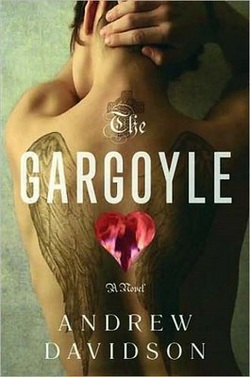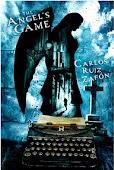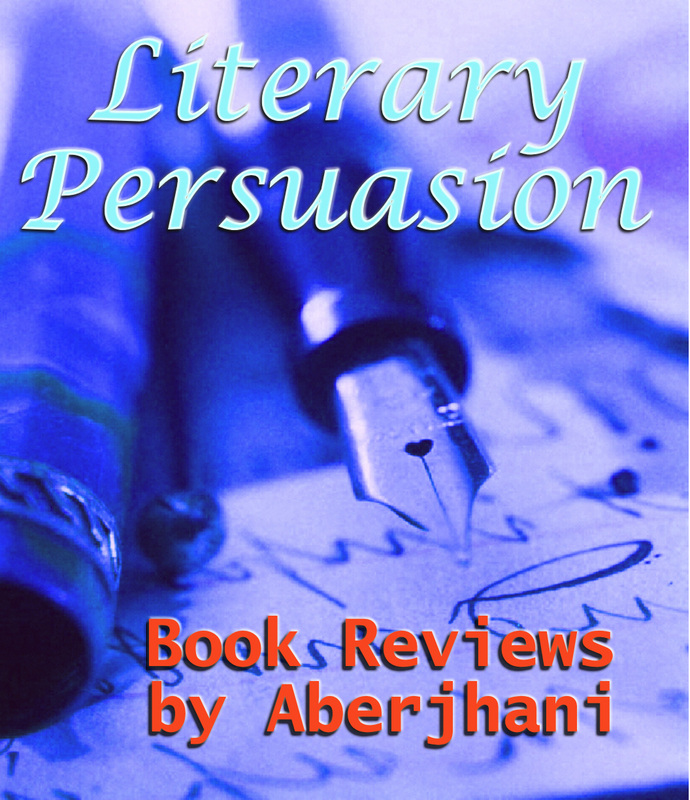
Andrew Davidson’s The Gargoyle continues to win acclaim for a number of reasons: one is the author’s insightful blend of world cultures to create a single tapestry of world-class literature. Another is his seemingly
seamless fusion of classic genres such as Gothic, erotica, and horror to create something new beneath the literary sun. And a third is his invention of two of the most compelling characters in modern literature. The role played by the defining power of character throughout The Gargoyle becomes evident in its first horrific opening pages as our nameless anti-hero drinks and drives his way to a life-altering crash. The detailed account of the inferno that engulfs and permanently disfigures him is as lucidly terrifying as it is mesmerizingly precise. It’s not the kind of thing that most people survive but this man does, albeit with severe anatomical damage and loss: “I could hear the bubbling of my skin as the flames kissed it.” In fact, as a man and former porn star, he suffers the loss of the one appendage with which he had earned his living. During the course of his hospital recovery, the narrator battles thoughts of suicide, a growing addiction to morphine, and the excruciating pain of cultivating the growth of brand new skin. Enter Marianne Engel––“She appeared in the burn ward door dressed in a light green hospital gown, with those unsolvable eyes and that riotously entangled hair”––a former psychiatric patient and artist famed for sculpting gargoyles. She is convinced that she and the once-upon-a-time porn star have shared at least one major previous lifetime together when she was a German nun and he was a mercenary soldier. Even more odd, however, is Engel’s claim to have never died at all while waiting some seven centuries to reconnect with her once-beloved. She is comfortable enough with this belief that she strips naked in her new/old friend’s hospital room to reveal a body covered with a luxury of tattoos: a beaded rosary and cross, a snake coiling up her leg to her sex, a Sacred Heart on her left breast, a pair of angel wings upon her back, and more. Whereas we might expect the irony to be painful, it is instead profoundly daring. Engel stands before her friend painted with beautiful symbols while the man once accustomed to being paid for his beauty is now something more akin to her gargoyle sculptures. To a degree, it would seem that his extreme disfigurements make him into the “Gargoyle” of the book’s title. But herein may lie a central aspect of author Davidson’s literary art. Is his anti-hero a gargoyle now because of how he looks, or was he in fact more of a gargoyle because of the cynicism and self-absorption that dominated his personality before his life-transforming accident? And does the ensuing journey to emotional and spiritual recovery make actually make him more beautiful than he ever was in the past? Marianne seems at first to be a hyper eccentric teller of tales whose stories simultaneously puzzle, captivate, and motivate her friend. It turns out, however, that these stories––in such diverse settings as France, Japan,Germany, and Iceland––have a much greater function than simply passing the time while recuperating. Davidson’s skill at evoking the passions and dilemmas of characters in different cultures and historical eras is truly admirable. Likewise, his Dickensian talent for the creation of a cast of supporting characters who, against the odds, lend credible depth, substance, and color to the narrator’s and Marianne’s fantastic story. Maniacal or not (or more precisely, “schizophrenic or not,”as our narrator suspects) Marianne becomes much like the angel indicated by the tattooed wings on her back as she moves our narrator into her home. There, she alternately nurses him, tells one amazing story after another, and works herself into frenzied bloody exhaustion to complete a final series of gargoyle sculptures, with the very last being of you-know-who. As one grows weaker and the other grows stronger, their original roles reverse and readers find themselves rethinking the plausibility of Marianne’s extraordinary claims. Interwoven masterfully throughout The Gargoyle are deeply embedded allusions to Dante Alighieri’s Inferno that not only tell the history of the book itself, but that in some ways re-write the masterpiece and present it in modern form as The Gargoyle. To fully understand such a notion, one has to read and actually experience Davidson’s triumphant first novel. A number of readers have suggested that taking on The Inferno (for those of us who did not get to it in high school or college) either after or before reading The Gargoyle, doubly enhances the pleasure of delving into this exceptional work of new millennium fiction. by Aberjhani
0 Comments
 Anyone first introduced to the impassioned prose of Carlos Ruiz Zafón through his international bestseller, The Shadow of the Wind, will find it difficult to avoid comparing it to any follow-up to the novel. Where Zafón’s The Angel’s Game is concerned, that is both a good thing and a not-so-good thing. It is also inevitable because page by page and chapter by chapter, we come to realize there’s a reason the novel is set in the same city, Barcelona, as The Shadow of the Wind, but an entire two decades ahead of it. That reason does not become completely clear until you are able to compare some very specific details on page one of The Shadow of the Wind with corresponding details toward the end of The Angel’s Game (the results of which readers can discover for themselves). If all this sounds slyly amorphous and irresistibly intriguing, that’s because Zafón specializes in literary puzzles and mazes, and The Angel’s Game is an exceptional one. It’s easy to see the many ways that The Angel’s Game extends the author’s masterful use of the labyrinth as a symbolic metaphor but at the same time the novel is a very different one that abandons the kind of tightly constructed plot line applied in the previous book. Whereas the beginning of The Shadow of the Wind introduces readers to what is clearly an historical mystery in the classic mode that teases and beguiles with every new development, The Angel’s Game starts out more like a literary memoir: “A writer never forgets the first time he accepted a few coins or a word of praise in exchange for a story.” Such an observation will invite many writers to nod in agreement, and prompt readers to sigh with romantic notions about what it means to be a writer. It hardly seems like a strong enough foundation upon which to build a serious novel of nearly 500 pages. However, it soon enough becomes clear that The Angel’s Game is indeed a kind of mystery that dissects the life and career of one David Martin, steering readers through the turbulence of his youth, the precariousness of his creative genius, and the uncertain motives of the people who populate his life. A survivor of childhood trauma and abandonment, David grows up as the ward of a newspaper called The Voice of Industry; and, as the chosen protégé of a philanthropist named Pedro Vidal. He receives his “first crack at glory” when the newspaper is on its way to press and the editor discovers he’s short of an entire page of copy, providing David the opportunity to produce his first published story on the spot and launch his literary career in dramatic fashion. The launch successfully establishes David as the writer of a newspaper fiction series called The Mysteries of Barcelona, then later as the author of a series of “penny dreadfuls” (once known in the U.S. as “dimestore novels”) called City of the Damned. For the latter, he is required to write under the name “Ignatius B. Samson,” which he considers “a small price to pay for being able to make a living from the profession I had always dreamed of practicing.” (review continues below) Of all the shifting benevolent and sinister characters in The Angel’s Game, none are more baffling than the mysterious Andreas Corelli, “a gentleman with black, shining eyes that seemed too big for his face,” and who inspires both hope and fear. Ostensibly, Corelli appears to be an eccentric publisher and philanthropist out to entice David to write a masterpiece of religious fiction called Lux Aeterna. But he is clearly much more than that. David’s first communication with him comes in the form of an invitation to accept “a little surprise” that turns out to be a sexual encounter with a ghost rather than an actual meeting with Corelli. Eventually the two do meet and enter into an agreement that changes, or possibly confirms, the course of David’s life. The big question, however, is exactly who and what is Andreas Corelli? Is he the angel of the novel’s title who has come to liberate David from the soul-numbing agony of writing books he doesn’t believe in for the sake of earning money to stay alive? Or is he something closer to a demon intent on corrupting David’s talent for some malevolent purpose? Could it even be that he is neither of these but a manifestation of David’s own madness creating the kind of exalted literary intrigue and drama that he has not been allowed to publish as a would-be serious author? From David’s love for Christina to his obsession with the mystery surrounding the reported death of prominent Barcelona lawyer Don Diego Marlasca, all roads seem to twist and turn and lead back to Corelli. The Angel’s Game is in fact a prequel to The Shadow of the Wind. It is, like its predecessor, a major homage to books and at the same time a mesmerizing metaphysical mystery. Just how deeply passionate Zafón is about books and what they have contributed to civilization over the centuries may be summed up in this passage from the eulogy for the owner of the Sempere and Sons bookshop: “Seňor Sempere believed that God lives, to a smaller or greater extent, in books, and this is why he devoted his life to sharing them, to protecting them and making sure their pages, like our memories and our desires, are never lost. He believed, and he made me believe it too, that as long as there is one person left in the world who is capable of reading them and experiencing them, a small piece of God, or of life, will remain.” by Aberjhani All writers to one extent or another owe a debt of gratitude to writers in general because so much of what of we produce as authors represents a response to what we first experience as readers. Call it the yin and yang of a literary persuasion stemming from a precipitation of language and meaning that storms into our lives and then evolves to become part of the creative cycle itself. The most obvious example of such literary call and response is that of the book review, now among the most established of aesthetic exercises in cultural debate, affirmation, combat, and reportage. It also just happens to be one of my pen’s favorite indulgences. In fact, my passion for reviewing books has taken many forms: journal entries, poems, interviews, muted ramblings to myself, letter exchanges, etc. The richness of authorial exchange has fed my life in many ways and for that reason––as well as to pass the joy on to readers––I am happy to launch the new Literary Persuasion section here at Bright Skylark Literary Productions. Those who were dismayed to see my reviews of their books disappear from Amazon earlier this year will be glad to Know I plan to post as many of them here as possible. What follows below is actually not a book review but a short discussion (previously posted on AuthorsDen) on what it means to be an author in this age of 21st century digital wonders. It belongs here because it illustrates the importance of maintaining the tradition of reviewing books at a time when the very nature of publishing remains in a state of flux on virtually every level. Aberjhani The Rise of the 21st Century Digital Author It’s a curious thing to call oneself an author in this early half of the twenty-first century. The word now means so much more than it did when classic authors such as William Shakespeare, Frederick Douglass, or Anais Nin made their claims to literary fame. Although their works may have been as emotionally, politically, and ideologically informed as that of the accomplished twenty-first century author, a number of major differences separate them from their modern counterparts. The word “technology” might quickly come to mind for some, but, in fact, many of our literary heroes were directly connected to the technological advances of their time and some even owned private printing presses to ensure the publication of their works. Without doubt, few, if any, could have imagined the invention of the Internet or its impact on every aspect of literary culture, from the publication of electronic books to blog tours across the net. But at least two things in particular help distinguish the 21st century digital author from his or her classic counterpart: NUMBER 1–– is familiarity with the many forms in which books are now presented to the reading public–– through traditional publishing, independent author services, eBooks, audio books, blog-books, media downloads, serialized web posts, graphic novels, film adaptations, etc. Along with this comes some awareness of how each of these forms helps cultivate different types of reading audiences. AND NUMBER 2–– the level of engagement and communication with local, national, and global communities through an established literary presence enhanced by digital social networks. This is a particularly important quality because it has to do not only with readership, but an individual consciousness that keeps an eye on the crossing cultural currents of the world community; and, with a literary sensibility that fosters some sense of camaraderie within that human species known as authors. by Aberjhani Celebrating Creative Thinkers International’s 5th Anniversary |
Archives
November 2023
Categories
All
|

 RSS Feed
RSS Feed